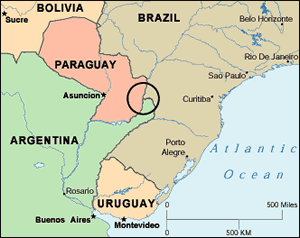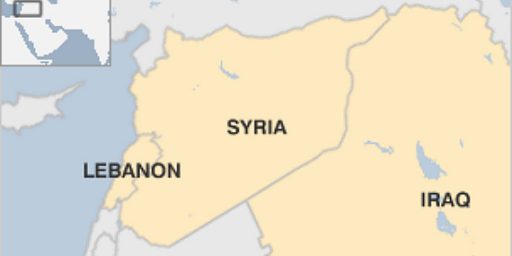Israel, Hezbollah, and 4th Generation Warfare
I’m a couple days late to the party but John Robb nails the strategic situation Israel faces in Lebanon:
Israel’s only chance to reverse this situation and win (which will be at most a limited victory, given previous blunders) in this war is to fully embrace the light infantry approach and fight this at close quarters. This means sending the tanks back to the sheds, slowing down the air campaign (limiting it to counter-battery fire), and reducing the infantry’s dependence of tactical firepower support. Further, all efforts that destabilize the Lebanese state should be reversed. Of course, this will mean higher casualties for Israel and Hezbollah may get resupplied, but it will provide a path to more battlefield success which will mitigate some of the strategic consequences of abject failure.
I understand why Israel didn’t choose that path, given the pressures of democracy and the media age. But it was obvious to most of us from literally Day 1 that trying to fight terrorists entrenched among a civilian population with heavy bombing was doomed to fail.






A couple of days late indeed. Yesterday we started getting news reports about Israeli forces leaving their tanks behind, and advancing on foot, spread out from each other. They are also setting up snipers in positions to counter possible ambushes, and performing late night raids that have nabbed several Hezbollah fighters in their sleep.
It took Israel about a month to learn how to combat the Hezbollah insurgency, and US forces have been in Iraq for 3 years now and are still trying to police the country from armored trucks. Perhaps once Israel finishes winning their war, they can give lessons to our commanders.
Michael:
I’d point out that Israel has been fighting Hezbollah since 1982, not last month. And we’ll see how well they do in accomplishing their mission.
Furthermore, our mission in Iraq is tremendously more ambitious that Israel’s here. Israel would gladly leave Lebanon a pile of smoldering rubble if it would defeat Hezbollah. The U.S. is trying to help facilitate a fledgling democracy in Iraq while keeping its factions unified.
But I support the troops! Hey, they’re doing a bang up job!
So Michael, what exactly to you base your opinion on, the nightly news?
No, there are plenty of American feet on the ground, outside of armored vehicles, in Iraq. It’s kinda tough to do a 100 mile supply convoy on foot in 120 degree heat.
Infantry with minimal firepower/armoured support assaulting dug-in defenders equipped with automatic weapons.
Great idea.
Lets consider some historical parallels: the Somme and Gallipoli come to mind for a start.
What the hell are you talking about John? ‘Minimal firepower’ does not accurately describe either the U.S. or the Israelis.
LJD:
By ‘minimal firepower’ I am not desribing present U.S. or Israeli methods.
I am talking about the alternative tactics and operational approach Robb advocates:
“…light infantry …fight this at close quarters …sending the tanks back to the sheds …reducing the infantry’s dependence of tactical firepower support. ”
Minimal firepower seems a fair summation.
In certain circumstances it might work. But Hezbollah appears to have a rather formidable network of bunkers and hilltop villages with (I assume) prepared fields of fire, mines, wire, machine guns etc.
To assault these with light infantry would make Robb’s acknowledgement that “Of course, this will mean higher casualties” a massive understatement. The assaulting infantry would be slaughtered.
While Israel might do well to take broader political factors into consideration re. air strikes, assaulting prepared defensive positions without artillery and armoured support is a non-starter.